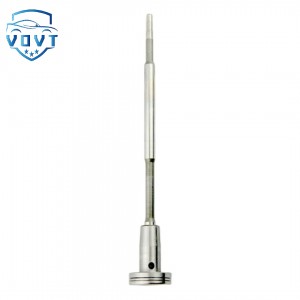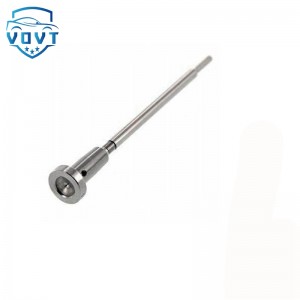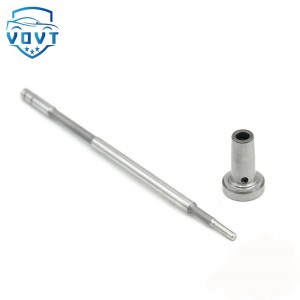High Precision New Diesel Injector Control Valve F00RJ02246 Valve Assembly for Fuel Injector Engine Spare Parts
Products Description
| Reference Codes | F00RJ02246 |
| Application | / |
| MOQ | 6 PCS |
| Certification | ISO9001 |
| Place of Origin | China |
| Packaging | Neutral packing |
| Quality Control | 100% tested before shipment |
| Lead time | 7~10 working days |
| Payment | T/T, L/C, Paypal, Western Union, MoneyGram or as your requirement |
Fatigue Performance Study of Valve Assemblies under Extreme Temperature Conditions
Abstract
Valve assemblies are essential components in fuel injection and hydraulic control systems, responsible for precise pressure regulation and rapid response. During long-term operation in extreme temperature environments—such as sub-zero cold starts or high-temperature continuous injection—the valve components experience significant thermal stress, material degradation, and cyclic fatigue loading. These combined effects can lead to microcrack initiation, sealing failure, or structural fracture, seriously compromising system reliability. This study aims to investigate the fatigue behavior and life prediction of valve assemblies under extreme temperature conditions.
A thermo-mechanical coupled finite element model was developed to simulate the transient thermal distribution, stress concentration, and strain evolution in the valve assembly during cyclic operation. The model incorporates temperature-dependent material properties, including yield strength, elastic modulus, and thermal expansion coefficient. To validate the simulation, accelerated fatigue tests were conducted using a high-pressure fatigue rig under controlled thermal environments ranging from −40°C to 250°C. The number of cycles to failure, crack initiation sites, and fracture morphology were analyzed using optical microscopy (OM) and scanning electron microscopy (SEM).
The results show that both high and low temperature extremes accelerate fatigue damage but through different mechanisms. At low temperatures, brittle microcracks dominate due to reduced ductility and thermal mismatch between components. At elevated temperatures, creep-assisted fatigue becomes the main failure mode, driven by material softening and cyclic thermal expansion. When operating at 220°C, the fatigue life of the valve seat decreased by nearly 48% compared with room temperature conditions. Additionally, thermal gradients were found to amplify local stress concentration near the valve–seat interface, further reducing fatigue strength.
To improve fatigue resistance, several material and structural optimization strategies were proposed. These include adopting nickel-based superalloys for high-temperature operation, coating treatments (such as CrAlN and DLC) to reduce thermal stress, and geometry modifications that smooth stress transition zones. The improved valve assembly demonstrated an extended fatigue life of up to 2.3× in high-temperature endurance testing.
This study provides a comprehensive understanding of the temperature–fatigue coupling mechanism in valve assemblies, offering valuable guidance for the design, material selection, and reliability enhancement of advanced fuel injection and hydraulic systems operating under extreme environmental conditions.
Keywords: valve assembly, fatigue performance, extreme temperature, thermal–mechanical coupling, material degradation, life prediction

























